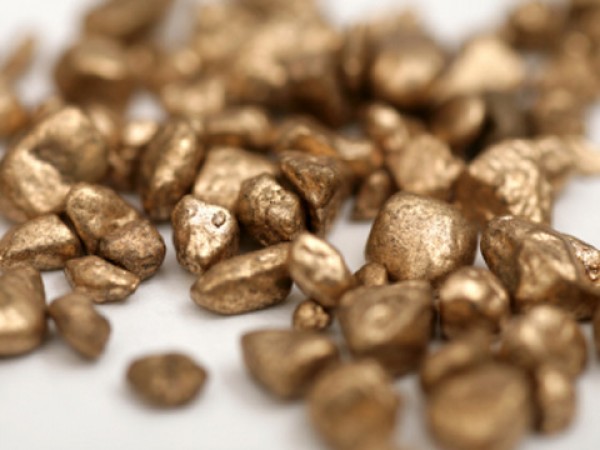Russia buys most gold for reserves since financial crisis of ’98

By Bloomberg
Russia boosted gold reserves by the most since defaulting on local debt in 1998, driving its bullion holdings to the largest in at least two decades.
The country expanded its stockpile, the world's fifth- biggest, by 37.2 metric tons in September to 1,149.8 tons, according to data on the International Monetary Fund's website. The increase, valued at about $1.5 billion, was the biggest since November 1998. Russian reserves, which overtook those of Switzerland and China this year, almost tripled since the end of 2005 and are at the highest since at least 1993, the data show.
A weakening ruble in the face of currency interventions is stoking speculation the Bank of Russia will accelerate its switch to a free float. The country, which defaulted on $40 billion of local debt in August 1998, is draining reserves as tumbling oil prices and U.S. and European sanctions over President Vladimir Putin's intervention in Ukraine worsen the ruble's losses and dollar shortage. Gold prices slid the most in 15 months in September.
"From the perspective of a sovereign which is concerned about aspects of geopolitical risk, it makes sense that they would have a bias toward physical gold," Brian Lucey, a finance professor at Trinity College Dublin and formerly an economist for the Central Bank of Ireland, said today by phone. With lower gold prices, Russia may have viewed it "as good a time as any to pick it up," he said.
2011 Record
Gold for immediate delivery slipped 6.1 percent in London last month, the most since June 2013, and reached this year's low on Oct. 6, according to Bloomberg generic pricing. It traded at $1,228.05 an ounce today, 36 percent below its 2011 record. Prices averaged $1,237.96 last month, valuing Russian additions at $1.48 billion.
The Bank of Russia spent $65 billion this year to slow the ruble's decline as the crisis in Ukraine soured relations with the U.S. and Europe and spurred capital outflows. Currency reserves held by the world's largest energy exporter fell $68 billion this year to $443.8 billion on Oct. 17.
Russian policy makers sold $200 billion in seven months to prop up the ruble after the collapse of Lehman Brothers Holdings Inc. six years ago, slashing reserves by almost 40 percent. They don't want to "repeat the experience" and may move faster to a free float and inflation targeting, Credit Suisse Group AG said in an Oct. 15 research note.
Central banks are adding gold to reserves again after reducing holdings for about two decades from the late 1980s. Nations may add as much as 500 tons to holdings this year, after increases of 409 tons last year and 544 tons in 2012, the London-based World Gold Council said in August.
Russian Production
Russia mined 248.8 tons of gold last year, ranking third among global producers after China and Australia, according to GFMS, a research unit of Thomson Reuters Corp. Bloomberg LP competes with Thomson Reuters in selling financial and legal information and trading systems.
Gold accounts for about 10 percent of Russia's total reserves, according to the council. That compares with about 70 percent for the U.S. and Germany, the biggest bullion holders, the data show. Italy and France have the next-largest reserves.
"In most countries, the ratio of gold holdings compared to foreign-exchange reserves is still relatively low, so there's still room to buy more gold," Daniel Briesemann, an analyst at Commerzbank AG in Frankfurt, said today by phone. "Buying gold might be a protection against devaluing currencies."
Here we are to serve you with news right now. It does not cost much, but worth your attention.
Choose to support open, independent, quality journalism and subscribe on a monthly basis.
By subscribing to our online newspaper, you can have full digital access to all news, analysis, and much more.
You can also follow AzerNEWS on Twitter @AzerNewsAz or Facebook @AzerNewsNewspaper
Thank you!
